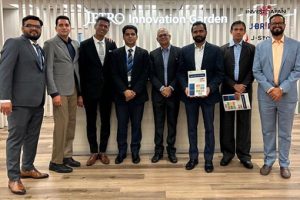In a recent survey conducted among board members in Singapore, it has been revealed that nearly eight out of 10 respondents perceive generative artificial intelligence (AI) as a potential security risk. This finding highlights the growing apprehension surrounding the use of this advanced technology in various sectors. Generative AI, also known as deep learning or neural networks, is a branch of AI that involves training models to generate new content, such as images, text, or even videos. While this technology has shown great promise in areas like creative design and content generation, concerns have been raised regarding its potential misuse and security implications.
The survey, which included board members from diverse industries, aimed to gauge their perceptions and understanding of generative AI. The results revealed that 78% of the respondents expressed worries about the security risks associated with this technology. Their concerns primarily revolved around the potential for malicious actors to exploit generative AI to create convincing fake content, such as deepfake videos or counterfeit documents. The board members cited several reasons for their apprehension. They highlighted the potential impact on reputation and trust, as well as the potential for financial losses if organizations fall victim to fraudulent activities enabled by generative AI. Additionally, the difficulty in detecting and mitigating the risks posed by this technology was also a significant concern.
Despite their concerns, the board members acknowledged the potential benefits of generative AI and recognized its growing importance in various industries. They emphasized the need for organizations to strike a balance between leveraging the capabilities of generative AI and implementing robust security measures to mitigate the associated risks. To address these concerns, experts suggest implementing stringent security protocols, including robust authentication mechanisms, data validation processes, and continuous monitoring of AI-generated content. They also emphasize the importance of educating board members and decision-makers about the risks and potential mitigations associated with generative AI.
The survey findings serve as a wake-up call for organizations and policymakers to prioritize the development of comprehensive frameworks and regulations to address the security risks posed by generative AI. By fostering a collaborative approach between industry stakeholders, government bodies, and technology experts, Singapore can proactively navigate the challenges and harness the potential of generative AI while safeguarding against its security risks. As generative AI continues to advance and permeate various sectors, it is crucial for organizations to remain vigilant and proactive in addressing the security concerns associated with this technology. By doing so, Singapore can foster a secure and trustworthy environment for the adoption and utilization of generative AI, unlocking its full potential while safeguarding against potential risks.






















